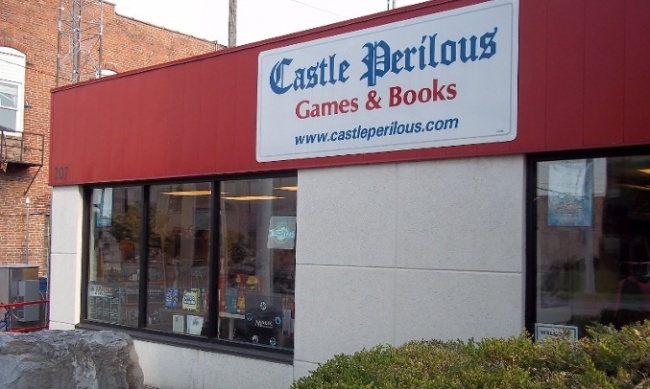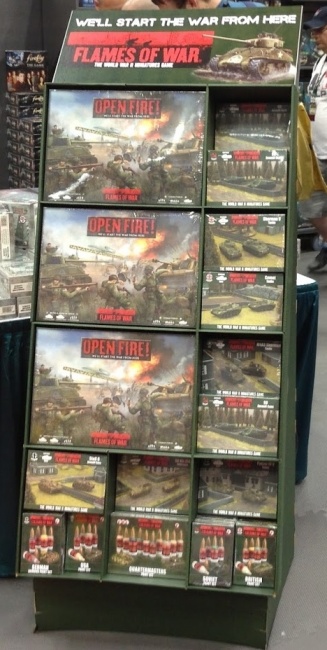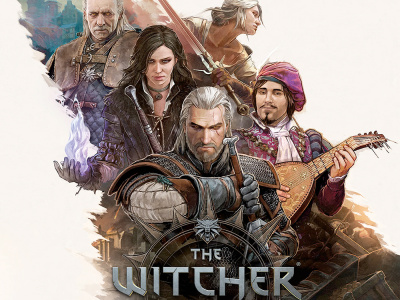Rolling for Initiative is a weekly column by Scott Thorne, PhD, owner of Castle Perilous Games & Books in Carbondale, Illinois and instructor in marketing at Southeast Missouri State University. This week, Thorne takes a look at the historical miniatures business, and why it stopped getting new customers when it moved online.
Every once in a while I hear from someone that the brick and mortar store is dead or that stores need to evolve into new models in order to compete with the Interwebs. This, even as the ne-plus-ultra online store Amazon starts to open its own brick and mortar locations, albeit with a few twists, such as making customers look up their prices online rather than pricing items in the store. I have to smile every time I hear that, as the game store model has evolved from where it was in the 1980s and 1990s and will continue to do so.
For example, back in the 1990s, we stocked a full 8-12 feet of historical miniatures: Napoleonics, ACW (American Civil War for those who don't speak acronym fluently), Civil War Ironclads, etc. Figures from companies such as Britannia, Old Glory and Thoroughbred. However, over the years we saw a shift in demand. Customers wanted specifically posed figures for specific units for specific eras of specific wars.
To satisfy the demand would have required us to drastically expand the amount of space devoted to historics without a significant increase in sales. We are talking several thousand dollars invested for a few hundred dollars increase in figures sales as most people only wanted on or two figures at a time. Unfortunately, we had to put in orders of $400 to $500 at a time in order to satisfy those 1-2 figure purchases, leading to extensive inventory creep.
Even stocking in Flames of War, probably the most widely played of the current crop of historic miniatures, runs a store, last time I checked, upwards of a grand, or, if a store wants to order smaller qualities through distribution, a significantly smaller discount.
Slowly, in order to get exactly what they wanted, customers turned to mail order purchases, first from catalogs in the early 1990s, then as the Internet became more familiar, to online purchases. At the store, we also slowly cleared out the remaining historics and replaced them with the burgeoning Games Workshop, Ral Partha and Reaper lines.
A number of stores that had heavy historic miniature focus, including a couple of highly regarded ones in St. Louis, either closed their doors or redirected their energies, as we did, into other lines (primarily Games Workshop) for miniatures play.
The downside of this for historic miniatures play is that, as stores like ours moved away from historics, so did public play space devoted to them. In order for a game to stay successful, it needs new blood coming in and new players were not privy to where to play historics and historic players, in general, did not do much outreach to them.
Most historic miniatures games today are played either in homes or at conventions such as Little Wars and Historicon, where you play with people already familiar with your preferred genre of history. But there’s little chance to introduce outsiders to the game, one of the benefits of playing in public.
In the 1970s, miniatures wargaming WAS historics, now they are a fraction of the $1.2 billion industry. As historic customers moved away from the storefront and towards mail and online ordering, so did the retail store.
The opinions expressed in this column are solely those of the writer, and do not necessarily reflect the views of the editorial staff of ICv2.com.

Column by Scott Thorne
Posted by Scott Thorne on September 19, 2016 @ 1:38 am CT
MORE GAMES
'A Villainous Halloween' In-Store Event
August 15, 2025
Wizards of the Coast announced A Villainous Halloween , a new Magic: The Gathering Commander in-store WPN event.
Base Game, Expansions, Accessories
August 15, 2025
Asmodee will release The Witcher: Path of Destiny core game, expansions, and accessory pack.
MORE COLUMNS
Column by Scott Thorne
August 11, 2025
This week, columnist Scott Thorne notes a new twist in the Diamond Comic Distributors saga and shares his thoughts on the Gen Con releases that will make the biggest impacts.
Column by Jeffrey Dohm-Sanchez
August 7, 2025
ICv2 Managing Editor Jeffrey Dohm-Sanchez lays out the hotness of Gen Con 2025.








